A Webinar was held on 21st December, 2021 on “Argentina-Pakistan Relations over the years and its Future Aspirations” under the auspices of Karachi Council on Foreign Relations (KCFR). Chairman KCFR Ikram Sehgal hosted the session. The Plenary speaker was His Excellency Leopoldo Francisco Sahores, Ambassador of Argentina. The webinar was to be moderated by Mr. Saeed Allawala, Member Board of Governors KCFR but he was unable to do so due some unavoidable circumstances, Commodore Sadeed Anwer Malik, General Secretary and CEO KCFR moderated the webinar.
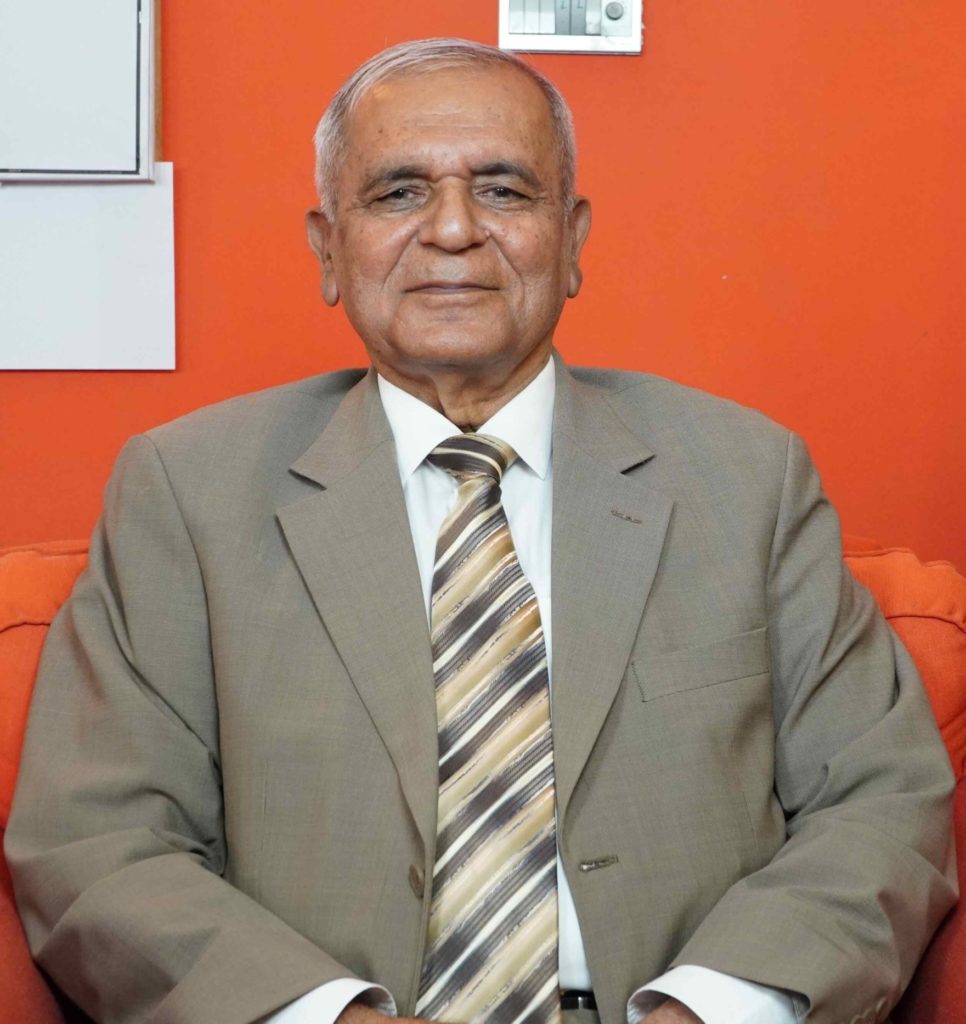
Commodore Sadeed Malik: Your Excellency Leopoldo Francisco Sahores Ambassador of Argentina to Pakistan, former Ambassador of Pakistan Mrs. Naila Chohan, distinguished guests, Chairman, Members of Board of Governors Karachi Council on Foreign Relations (KCFR), ladies and gentlemen I am Commodore Sadeed Malik Chief Executive of KCFR. Before we commence may I very briefly introduce KCFR. KCFR was founded by former late Chief Justice of Pakistan and later Governor of Sindh Mr. Justice Saeed uz Zaman Siddiqui followed by former Federal Minister and Governor of Sindh, Lt Gen Moinuddin Haider, then grandnephew of Quaid-e-Azam Muhammad Ali Jinnah, then former Attorney General of Pakistan and advocate of the Supreme Court of Pakistan Mr. Liaquat Merchant. He was followed former Chief of Naval Staff and a former Ambassador Admiral Shahid Karimullah, then our chairman, was Mr. Shahid Amin and our present Chairman is Mr. Ikram Sehgal. KCFR deliberates mainly on Foreign Relations and Economic Affairs and ever since Covid-19 we now hold webinars. We have held a number of webinars including with the President of Pakistan, former President of Azad Jammu and Kashmir, Pakistan’s Foreign Minister, the Security Advisor to the Prime Minister of Pakistan, the Education Minister, former Finance Ministers and the Ambassadors of a number of countries in Islamabad and a few delegates of foreign countries visiting Pakistan. Today’s programme was to be moderated by Mr. Saeed Allawala however due to some unavoidable circumstances he is not present with us right now and I do once again welcome His Excellency Mr. Leopoldo Sahores and Ambassador Naila Chohan who has been our Ambassador to Argentina as well as four other countries. She is an alumni of Quaid-e-Azam University and Harvard University; beyond her diplomatic career Naila Chohan is a strong advocate of women’s right and she also undertook the Executive Development Programme from Harvard University from Harvard. As a hyperpolyglot she has demonstrated fluency in seven languages including English, French, Bengali, Punjabi, Urdu, Persian and Spanish. May I now request Ambassador Naila Chohan for her elaboration on the topic.
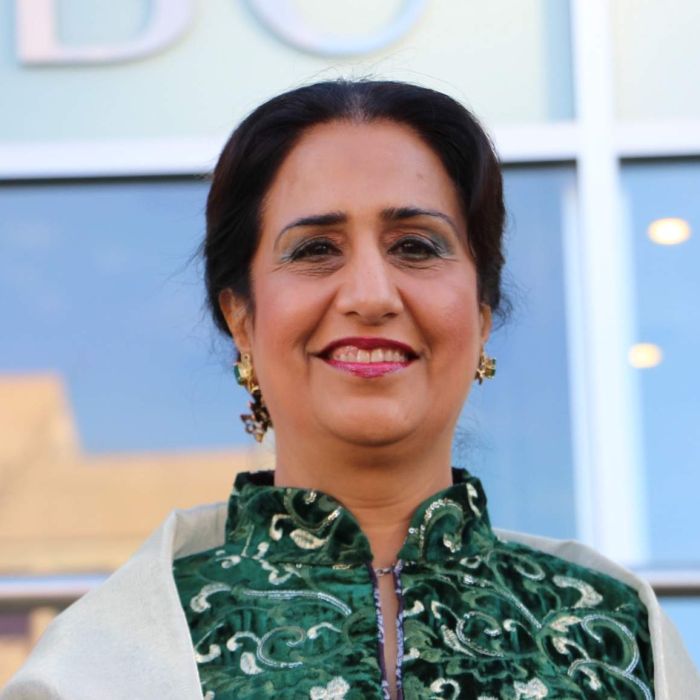
Ambassador Naila Chohan: Bismillah Ar Rahman Ar Rahim. Thank you very much for inviting me to this auspicious occasion of the friendship between Argentina and Pakistan. The 70th Anniversary, that is a long time, I would have liked His Excellency Sahores to have started but if you would like me to start, I will do so. I can say that our relations are very well founded since 1951 so it is the oldest Embassies we have in the world, 1951 – it was October! We have a lot of things in common, Pakistan has always been part of the Consensus Resolution on Malvinas because it is an important issue. We believe in principles and self determination as far as Kashmir is concerned. Initially Argentina was also supportive of the Resolution on Kashmir but lately in the complications of the Malvinas issue they haven’t been that articulate, although we would like them to be so because Kashmir is also a very important issue. We have friendship between the people although I will always say that our lands are far away but our hearts are very close, so we are very close to each other in our way to interact and live. They have a very big neighbour, we also have a very big neighbour and they have challenges in their region and we have challenges in our region but we work together at the United Nations and we have similar position on UN Reforms because we believe that the UN can only be effective if it reformed and it is not manipulated by a few powerful ones. Our history has many strengths. At the time of Ayub Khan in 1958/1959 we have had several interactions, former president Musharraf has been to Argentine in 2004 that gave a new boost to our relations, several agreements were signed during that visit and then there were relations between our Foreign Service Academy and the Argentinean Academy of Foreign Affairs. When I was there, we had established the Joint Business Council, we have a Joint Economic Committee and then there is the Pak-Argentina Business Account so there are many areas where we can support each other. I don’t know how far these have been effective perhaps I think Leopoldo Francisco Sahores who is a very young dynamic diplomat we can give a push to our business and trade relations I think we can give substance to our friendship which is so strong and it is now the 70th Anniversary of our relationship we need to look at all areas. When I was there, we had also established linkage between the School of Oriental Study and the University of El Salvador and our area study center here and we wanted exchange of students because our students can be our good ambassadors, rather cultural ambassadors so we should work on that. I think we need to follow up on the agreements that have been signed, we have quite a few but somehow we have not been able to implement them in the way would have liked so I would like to seek Excellency Ambassador Sahores’ views on it and I think it would be better if we could have an interactive session because we can move forward from that. With this I thank you for your patient hearing and move the discussion forward.
Commodore Sadeed Malik: Thank you very much Ambassador Naila Chohan. Before I request His Excellency, I would like to tell the participants, very briefly, about His Excellency Leopoldo Sahores. He is a distinguished career diplomat, he has served at a number of countries and has held appointments at the Ministry of Foreign Affairs, he is an alumnus of Australian University in Environmental Development. In addition, he holds a Degree in Environmental Law from the Argentina Catholic University and is fluent in English, French, Italian and Portuguese. May I now request His Excellency Leopoldo Francisco Sahores, Ambassador of Argentina to Pakistan, for his plenary address.
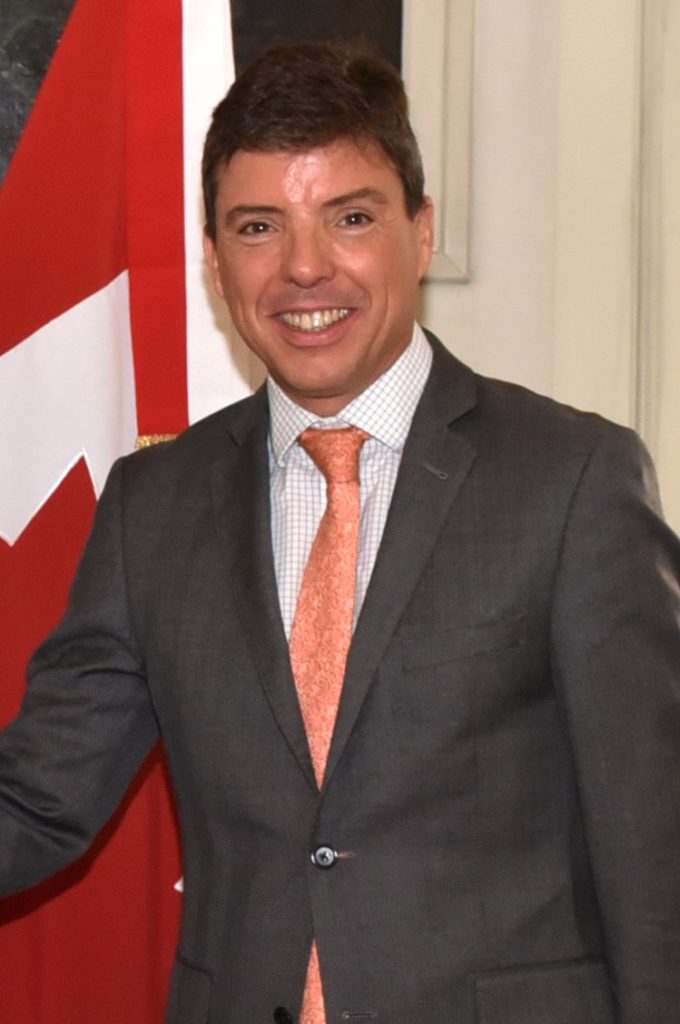
His Excellency Leopoldo Francisco Sahores: Thank you very much Chairman of the KCFR Mr. Ikram Sehgal, KCFR Secretary General Mr. Sadeed Anwer Malik, Ambassdor and friend Naila Chohan, members Board of Governors KCFR, ladies and gentlemen, good morning. It is an honour for me to address this webinar on Pakistan-Argentina relations over the years and future relations and I commend KCFR for this initiative because there is no doubt it is a timely one as we celebrate the 70th anniversary of our relations. Being new to Pakistan, I arrived just 7 months ago, I cannot agree more that we are thinking about future aspirations, it is my challenge from day one to unfold the full potential of our bilateral relations between Argentina and Pakistan. 70 years ago, on October 15, 1951, both governments decided to establish bilateral relationships by an exchange of notes in Washington DC, later the same after special decree in Argentina approved the establishment of a Consulate in Karachi, a consular post was mandated to find the premises for its future Embassy which was finally established in January 1st, 1968. In 2021 an important anniversary was held to commemorate 50 years of the adoption of Security Council Resolution 303 on Dec 6th 1971 which was also mentioned by Ambassador Chohan, a process in which Argentina played a crucial role. You know the SC was unable to do anything about the situation arising from the conflict between Pakistan and India due to the former union of the soviet socialist republic. At the outset a delegate to the UNSC at this time was Mr. a prominent Argentine diplomat who was determined to make every effort to halt the military or halting intervention in the conflict in the subcontinent. So he did that but the SC failed to exercise its primary responsibility in the interest of peace and security and the permanent members failed to reach unanimity. This was one of the Special Sessions of the General Assembly which was convened under this unit of peace resolutions, the UN General Assembly adopted a Resolution ordering the immediate ceasefire and withdrawal of troops. In 1973 the government of the Islamic Republic of Pakistan acknowledged Argentina’s support extended to Pakistan at the United Nations Security Council and the United Nations General Assembly against the backdrop of the 1971 war between India and Pakistan and gave the name “Argentine Park” to a spacious park in Islamabad. I had the pleasure to commemorate the 70th Anniversary of ties between Pakistan and Argentina with the Minister of Foreign Affairs, Mr. Mehmood Qureshi last October when we had a tree plantation ceremony over there; our of the seven species planted three of them were from Argentina. Let me acknowledge the constant support of Pakistan on the resumption of negotiations between Argentina and United Kingdom in order to find a peaceful and definitive solution to the sovereignty dispute related to Malvinas. To confirm, during the early days relations between the two countries were based values and a great deal of agreements on formal topics, as confirmed by Ambassador Chohan, and continue till today, an institutional framework was put in place to develop our bilateral agenda, so we have from 1980 up to 2014 or thereabouts signed many agreements on cooperation in different fields i.e. economic and technology, trade, sports and education and at the same time we had a political dialogue mechanism between both governments.
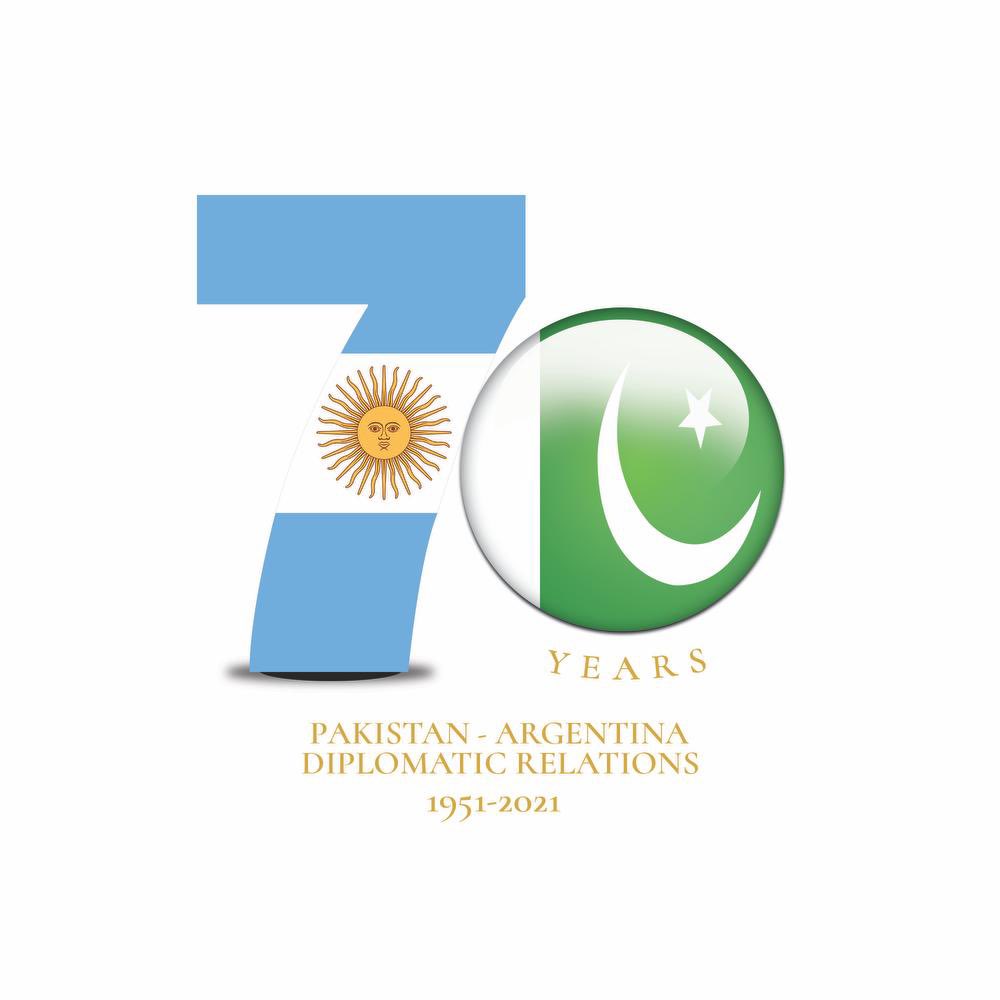
So, this was about the past. It is time now to speak about the aspirations, this will be in the form of questions which will be like a trigger to the questions. First, where are we now? Has the institutional framework proved successful given its limitations? Have we been able to diversify bilateral trade and increase it? Have we witnessed a surge in investment? Equally important, have we been able to increase people to people contact? Better knowledge of our national and regional junctures? Taking stock, I think you will agree that it is always welcome if one wants to move forward, progress in itself. This is what our government made last year in October and in May this year political consultations on trade were held. This was a useful exercise because both sides confirmed that much remains to be done to respond positively to those questions I have asked. But at the same time we realized that we can do much better. I think it is not about searching extremely ambitious targets but how to review our pace on achievable things, no about proliferation of MOU agreements, although I believe it is important to have this institutional framework, but I think it is more about work on specific projects which could be replicated applying a bottom to top approach. Also I think we must ponder on trade and what we trade, bilateral trade I must say, is almost negligible. Bear in mind that we are huge countries. Just about 555 million US$ upwards Argentina exports its main emphasis is on cotton, vegetable oil, etc. I think we can do much better there. Maybe we should look at another approach; you know Argentina is a very competitive agricultural country as is Pakistan, yet Pakistan is a country that looks to huge imports to meet low quality demand. Why is that? Well, it appears that Pakistan is not an efficient producer which translates in low yield of crops in agriculture and dairy goods. All this can be due to old machinery technology, scarce use of modern technology. Let me tell you that it took a few decades for Argentina to become an efficient producer which we were not 20 or 30 years ago but now we are; so Pakistan, I believe can learn from our experience and my message is ‘come to Argentina, farmers and those involved in the agriculture sector, there is a huge market here with a growing demand for food and with the entire locally made by Pakistan’. I mentioned that we need to work on specific projects and today is a very auspices day because today a joint venture is lodging with PASCO in Okara. This is 100% Argentine technology which will help Pakistani farmers to reduce the losses and damages of grain which is stored using very inefficient technology. Businesses have come together at this stage to bring new technology, low cost solutions which will have reciprocity on agriculture produce and storage. Another area, we know that food and marketing is of great concern for many industries and in Pakistan hinder the development of export oriented industry. Vaccination grade is Pakistan is slow and vaccines are not compatible with the limitations they have to go through. So there is a lot of area for cooperation between Argentina and Pakistan and there are Research Institutes who are more than happy and willing to share their experience and expertise with Pakistan. Another area that we need to work on, what about culture. Are you aware that Spanish is one of the UN official languages and the second largest native language spoken in the world after Mandarin is hardly, hardly taught in Pakistan. We would be interested working in setting up Spanish language Centers in universities for students to be able to study here, which will make a huge difference. Argentina has developed a system to certify vocations in Spanish which is recognized internationally.
I think there are many challenges, I just spoke about a few of them. I thank you for your thoughts and I will take any questions that may have arisen from my presentation. Thank you.
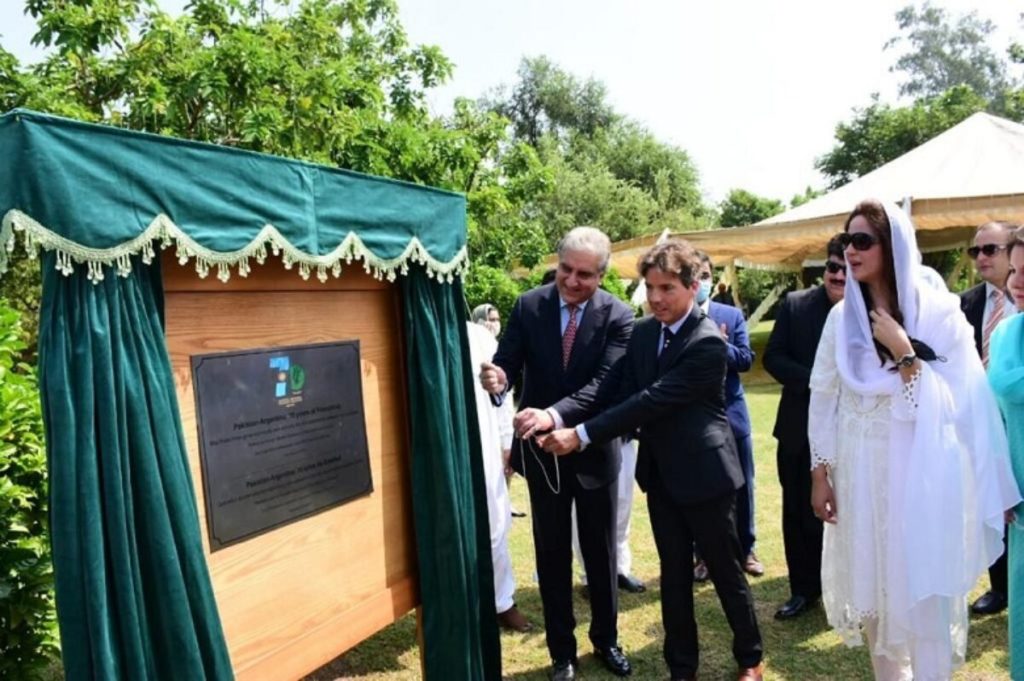
Question and Answer Session
Commodore Sadeed Malik: It is now time for questions and answers. One of the members has sent a question: How did you handle the IMF and towards the end of your presentation have mentioned a little about it but as Pakistan is deeply entrenched into this situation. You, Argentina had once defaulted, how did you come out of it?
His Excellency Leopoldo Francisco Sahores: First of all, we faced similar challenges like the one Pakistan is facing right now. We had to take all types of structural reforms, sometimes it is the labour market, revenue, easing tax burden, etc. so we have the same challenges although our programme is higher i.e. US$45 billion. In 2016 we were capable to renegotiating our debt, this was not with the IMF but it was a private debt which we managed to renegotiate last year but this time we were in default and if we are not able to make it by we will be in a serious situation but personally I am sure we will make it.
Commodore Sadeed Malik: We do have a number of technical and management institutions and they do offer very attractive terms to foreign students in Lahore, Karachi, Islamabad and elsewhere, we do that in English language. I am sure students over there would like to avail it. You have already mentioned and invited our students to first learn Spanish at your universities and then taking admission. That message has gone to the participants and it would appear, to the press also. Would you like to elaborate on whether any students from there would like to join Pakistani universities?
His Excellency Leopoldo Francisco Sahores: Yes. So far as I know Spanish is only taught at the National Model University of Modern Languages in Islamabad and we are talking about just 25 students all over Pakistan, so this is something we have to try to reverse in order to promote the teaching of Spanish. I have started to contact different universities and I am more than happy to contact any university that you might think will be interested to include Spanish as a language in their curriculum. In order for students to finish their study and get their certification we are working with the Ministry of Education in Argentina and for any Pakistani university offering Spanish can certify those students. So any certificate issued by Pakistani university will have international recognition.
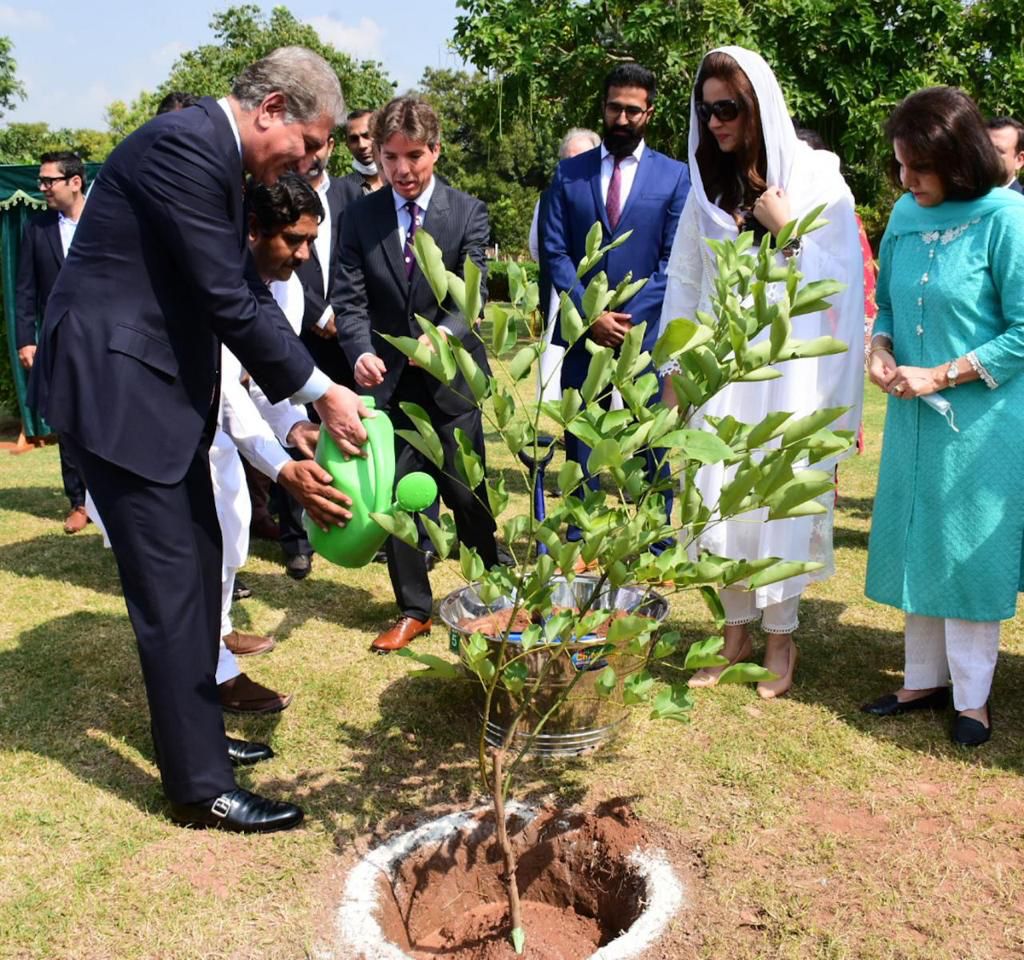
Commodore Sadeed Malik: There is another question from a member of our Board of Governors, Mr. Farooq Afzal who says that despite our potential our bilateral trade is less than US$ 200 million. There is a need for a Joint Business Forum to be held. Can you please help to arrange such a forum in Pakistan. For your kind information Mr. Farooq Afzal who is a businessman in Pakistan, is also Chairman of Pak-Turkish and a number of other institutions.
His Excellency Leopoldo Francisco Sahores: I think that is very necessary and I have presented in my presentation that rather than signing bilateral MOUs between governments and then not being able to implement them, I think we have to talk, to make the connection between businessmen in Argentina and Pakistan so they know each other and start working with each other. If that can materialize it will be fantastic. I have already had meetings with Chamber of Commerce and Industry in Lahore, I have to go to Karachi and I will be talking to different Chambers of Commerce in Pakistan. I want to do that and I am here to help and I am more than happy to any of the members who might have any suggestions and help him to contact his counterparts in Argentina.
Commodore Sadeed Malik: Ambassador Naila Chohan has raised her hand. Ambassador do you have any comments on this?
Ambassador Naila Chohan: Yes please. I have about three remarks on this. First Excellency I would like you to clarify; you mentioned that you have two soldiers deputed here, is it on the military observer group on India and Pakistan? If it is so then we are very grateful, thank you so much. The other point about language training in the Ministry of Foreign Affairs, we do foreign language training to diplomats (young diplomats) as you know. Since I was there I started getting Pakistani diplomats to go to Buenos Aires to learn Spanish, although the Spaniards were very upset. When the students came back they were very happy with their visit in Buenos Aires, I don’t know if we are continuing with that as I haven’t be dealing with Argentina for some time. Thirdly we are very happy that Argentina purchased the JF Thunder and I think that is an area we can look at further. Regarding agricultural machinery, yes that is very important because Argentina has been doing a lot of research. Even when I was there we were trying to promote Argentinean machinery because it was more affordable because we are friends more in the sense of having confidence in each other’s reliability but somehow due to the distance between our two country and the freight charges our businessmen were not too enthusiastic but if we can jump start the Business Council, have more members on it, make it more diverse so that we can identify areas then it would be useful for the two countries. Thank you so much.
Commodore Sadeed Malik: Excellency, please go ahead and respond to Ambassador Naila Chohan’s points.
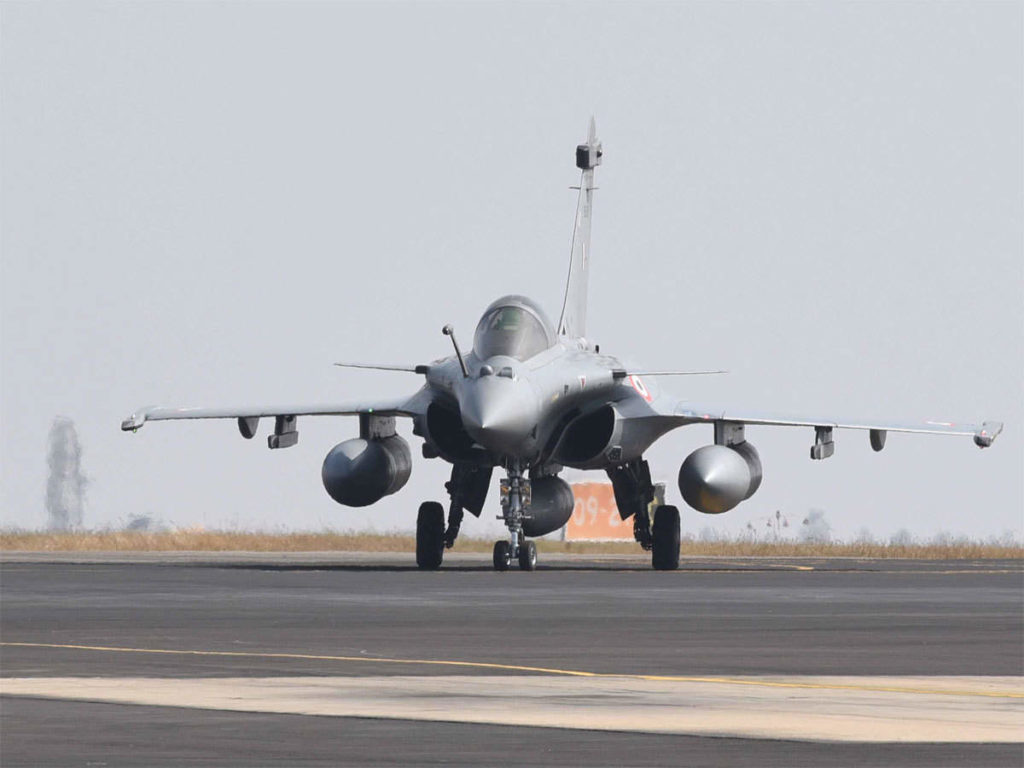
His Excellency Leopoldo Francisco Sahores: Yes, we do have two army people at the UN Mission and plan to continue that next year also. Secondly, I am going to talk to Foreign Office colleagues here and see whether the idea of young Pakistani diplomats going to Argentina has been continued. I understand this week the inauguration ceremony of new diplomats will take place, so this will be a good opportunity to find it out. You are completely right, sometimes the distance has a bearing on trade costs, etc. What I have learned in Pakistan and this is the message I am trying to convey that Argentine companies rather than thinking of exporting say conventional trade, they should start thinking about investing in Pakistan in say joint ventures with Pakistani companies; Pakistani government promotes investment and give lot of facilities for foreign companies to settle here. It is not only the local market which is huge but also the region, Pakistan is positioning itself as the gateway to Central Asia and the region with its Gwadar Port, so I think while we can continue with conventional export trade, I think Argentina companies should start thinking about investing in Pakistan. I think if we manage to bring at least 3 or 4 companies our trade will grow and business opportunities will grow as well. Thank you.
Commodore Sadeed Malik: We will come to the last question which is about the touristic opportunities in both the countries. Pakistan has got some beautiful tourist attractions and Argentina too has a number of beautiful spots which can be visited. I think there is a need to promote touristic attractions for the people of both countries. Would it be possible to do something in this respect too?
His Excellency Leopoldo Francisco Sahores: Yes, absolutely. I think it would be great if we could start working to bring people from Argentina to Pakistan and vice versa to showcase what each country has to offer. Being able to connect on a mutual platform like this will definitely help.
Commodore Sadeed Malik: Thank you Excellency for your address, thank you Ambassador Naila Chohan. We will now conclude with our Chairman Ikram Sehgal’s concluding remarks. Chairman, Sir.
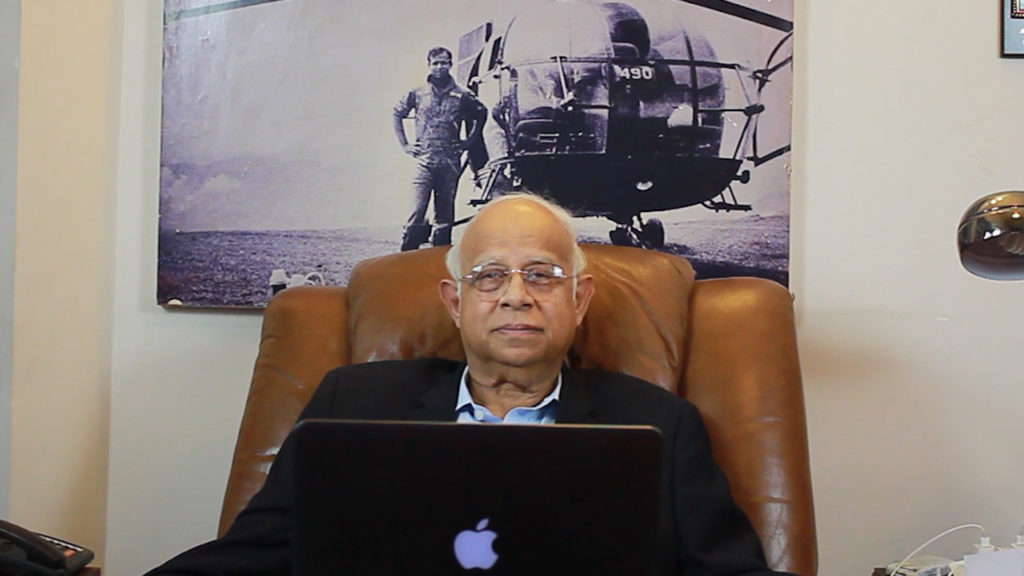
Chairman KCFR Mr. Ikram Sehgal: Excellency Sahores, Ambassador Chohan and all distinguished participants, first of all it is a pleasure to have you on the panel and also a great pleasure to have heard you speak about the great opportunities that can be utilized for the benefit of both the peoples of Argentina and Pakistan. It is a surprise that we are one of the older Embassies; but frankly it is not so much of a surprise. Argentina and Pakistan are in many cases far apart, if you look at, as His Excellency has said, particularly the agricultural field, we have a lot to learn. Like Pakistan Argentina is an agri-based industry but more importantly Argentina raised a lot of cattle and we need to learn from that. Moreover, we have to build on milk products, we are the fifth largest milk producing country in the world and yet we do not make cheese that we can. We can learn so much from Argentinean expertise and I am also glad that Argentina has bought the JF Thunder, you know I know about something like the Austrians have sold you a very long time back the Austrian SK105 Kurassier tank, our Khalid tanks are actually a derivative of that and the same person from Austria who designed the SK105 helped design our Khalid tank, so this is another thing we have in common. Excellency, all these things, the rhetoric needs to be put in words, words need to be put in deeds, thing have to happen and things can happen by interaction. The Council of Pakistan Relations in Pakistan is actually entering into a private sector exercise where we are going to go to certain Ambassadors who have served in those countries, countries like Argentina, the United Kingdom, France, etc. and we are going to ask them to back to their countries to really dispel some of the negative propaganda that is existing and to promote the friendship that can be promoted. For us somebody like Ambassador Chohan is a must if you ever need to go back to Argentina to really open this thing. Similarly, we would like to tell you that we would like to sponsor a couple of media people to come to Pakistan, live with us for 2 to 3 weeks, roam around Pakistan, see the country and make sure that Pakistan is brought to the Argentinean people. There are so many things that we can do together, so Excellency let me once again thank you, it has been very refreshing to have heard from you. Ambassador Naila Chohan, it is wonderful having you here and listen to all you have said and I look forward to further interaction. Excellency whenever you come to Karachi, you must give us time physically and have lunch or dinner and we will again project you physically with the business people of Karachi and also the academics, etc. so that they can learn from you firsthand what all can really happen between Pakistan and Argentina.
Thank you, Excellency, thank you Ambassador for your time.





